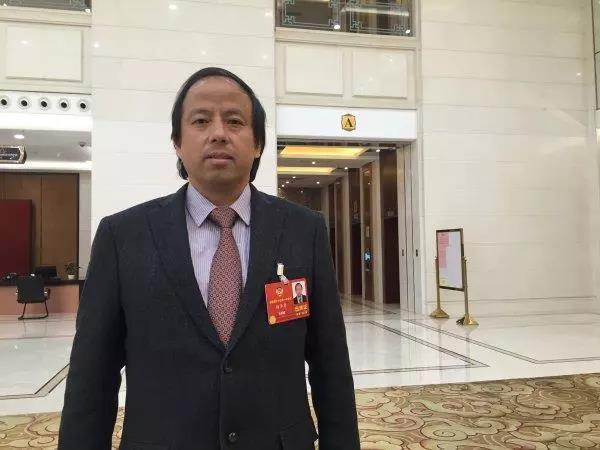Insights from ZJU scientists on the government report I
[Editor's Note: During the “two sessions” of the National People’s Congress and Chinese People’s Political Consultative Congress, Premier LI Keqiang delivered the 2019 Government Work Report, which has generated many headlines. What do ZJU scholars think about the new policies proposed in the Report?]
YANG Huayong, member of the CPPCC National Committee, member of the Chinese Academy of Engineering and dean of ZJU's School of Mechanical Engineering talked with Zhejiang Daily.

SHEN Yin (Zhejiang Daily): What impresses you most about the 2019 Report?
YANG Huayong: There is extensive coverage of the government’s ongoing efforts on scientific and technological innovation and talent support and management. Some of them aim to answer very specific questions.
SHEN: The government is “to foster a healthy research ecosystem”. From your perspective, what do you think needs to be improved? How about the current status of research cooperation in China?
YANG: A healthy research ecosystem involves the dynamic between competition and cooperation. We have observed significant improvements in China’s research ecosystem. However, there are more to be done. Currently competitive culture is more prevalent.
There are five leading Chinese universities located in the Yangtze River Delta, i.e. Zhejiang University, Fudan University, Shanghai Jiao Tong University, Nanjing University and University of Science & Technology of China. These five universities all have extensive partnerships with foreign universities. However, there is less inter-institutional cooperation between these five universities.
In terms of education, these five universities have similar requirements for some programs, while showing strengths in different fields. Because of their geographical closeness, the courses of these five universities can be more open and shared to their students, which may enhance communications at both faculty and student level and encourage joint efforts on research and education.
SHEN: How can institutions of higher education in the Yangtze River Delta enhance cooperation so as to bring into full play their strengths in research?
YANG: Premier LI said in the Report that “we will elevate the coordinated development of the Yangtze River Delta to the level of national strategy.” In addition to the optimization of economic structure of this region, I think education resources and technological strength also need to be consolidated during the process.
Furthermore, I have noticed that in the construction of the Guangdong-Hong Kong-Macao Greater Bay Area, there have been a host of substantial partnerships in terms of research and education resources. Similarly, the development of the Delta should strengthen intraregional and cross-border collaborations on this facet, for example, the establishment of global science & innovation center.
At this session, I submitted a proposal regarding the role of state key laboratories in the construction of the Yangtze River Delta global science & innovation center. A number of eminent institutions and teams in science and innovation are home in the Delta, who should seize this golden opportunity of the Delta’s coordinated development. Capitalizing on the existing scientific and technological resources, such as the state key laboraties in five renowned universities in the region, global science & innovation center can be built together to cultivate more competitive teams and promote more effective partnerships, as well as creating a world-leading environment for scientific breakthroughs.
On February 28, Hangzhou Municipal Government and Zhejiang University signed a cooperative agreement to co-establish ZJU-Hangzhou Global Scientific & Technological Innovation Center in Xiaoshan District. This Center will be new growth engine for province’s innovation-driven development and impel the construction of the Zhejiang Greater Bay Area. From a higher-level view and bigger picture, the Center should be incorporated into the coordinated development of the Delta.
SHEN: Scientific research calls for stable and massive support. The Report mentions that “we will work hard to cut red tape to enable researchers to concentrate on the pursuit of learning, innovation, and breakthroughs.” What kind of red tape do you think should be reduced at the current stage?
Yang: Scientific research is in essence a human activity. The Report mentioned that “we must empower teams and leaders of innovation by placing more human, financial, and material resources at their disposal and giving them more freedom to make decisions.” This is very important. Scientific research has its own rules, and it is subject to changes. The duration of projects may vary from one or two years to five or six years. There might be considerable alterations to the budget made a couple of years ago. Sometimes relevant departments should not impose too stringent control on the use of scientific research funds, otherwise it will dissipate much of researchers’ energy. While stressing fair competition and integrity, we must also provide researchers with ample space to make innovations.
The government has issued a package of effective measures to promote the reform on science and technology management systems. I hope that in the domains of basic research and core technologies for key fields, more trial reforms will be put in place and that these effective measures will be implemented as soon as possible so as to build China into a great power in science and technology.
This is an excerpt from the original news (in Chinese) published by Zhejiang Daily.